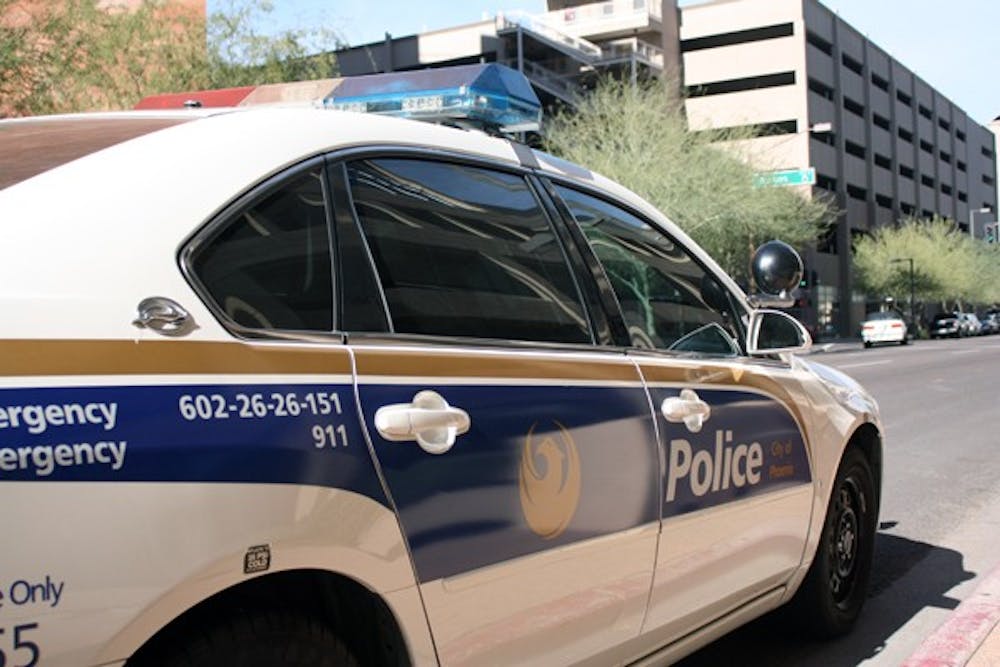The Phoenix Police Department began a trial program Monday that will change the previous shift hours for volunteer officers of the four day, 10-hour shifts each week to three-day, 13-hour shifts each week.
Officers will work 13 hour and 20 minute work days for three days in a row and have four consecutive days off as a part of the 13/20 program.
Officers from the Cactus Park Precinct in the West Valley will be working the extended shifts for the next six months as part of a contract agreement with the Police Law Enforcement Association (PLEA) and the City of Phoenix.
“The department determined since we have to do this, we need to do it on a trial basis to see what effects it may have on not only the components of our officers, but the quality of service we provide to our citizens,” Phoenix Police spokesman James Holmes said.
PLEA has considered this schedule for the past decade and has been getting positive feedback from its members, PLEA chief contract negotiator Will Buividas said. The trial program is a result of the years of discussion.
Buividas said the three-day work week has worked well at the Maricopa County Sherriff’s Office, as well as in a few southern California police departments. Phoenix PD wanted to do research on the trial period before making it the standard work schedule across the Valley, Holmes said.
The Mountain View Precinct will be the control group, working four days each week for 10 hours, Holmes said. This will serve as the comparison between the two precincts. “We get to pioneer a study into that type of environment for officers,” Holmes said. “There’s no comparison to really compare it to, so what we’re trying to find out is what those effects are going to be.”
Holmes said it is good to have both West and East Valley police officers involved for this research, which covers comparable demographics with its citizens and officers.
To conduct the research, the department chose Midwestern University in Glendale because an officer who attended the school recommended them for their reputation in researching programs, Holmes said.
Due to a budget-related hiring freeze that has been in effect for the past three years, Phoenix PD has had to work with a shortage of officers available on the street, Buividas said. The new scheduling is a way of putting more officers out there to serve the community.
“We’re always trying to find new ways to get senior guys back in control, because traditionally patrol has been a place where junior guys are at, and you lose all that experience,” Buividas said. The general response of approval among the officers has been about half and half, Holmes said. Since the program just started, it is too early to tell what impact it will make on the departments and its officers.
Buividas said that in his experience with new initiatives and programs, everything needs to play out before officers decide they like it.
Reach the reporter at sraymund@asu.edu





